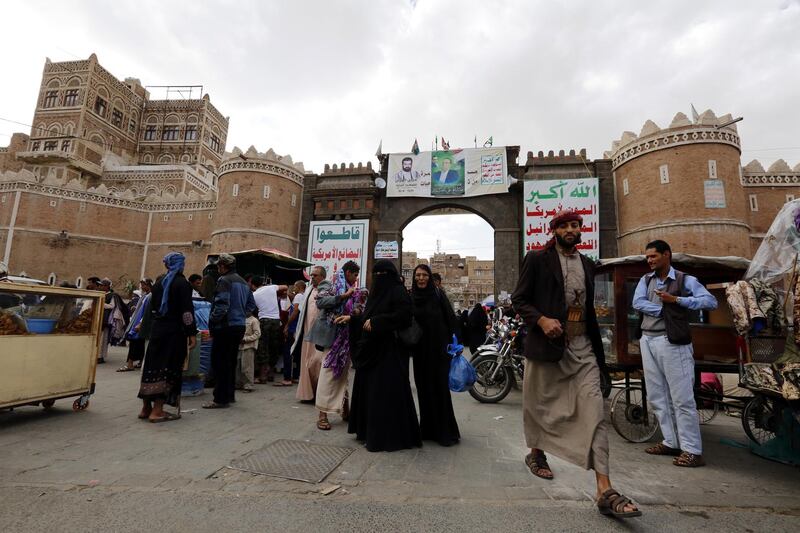Yemen's President Abdrabu Mansur Hadi has appointed Khaled Al Yamani as the country's foreign minister, replacing Abdel Malek Al Mekhlafi, according to a statement carried by the state news agency, Saba.
Mr Mekhlafi will become an adviser to the president, the report said, with Yemen's Ambassador to the United States, Ahmed Awadh bin Mubarak, absorbing the duties of Mr Yamani's past position as Yemen's representative to the United Nations.
Mr Hadi's internationally recognised government, supported by an Arab coalition, has been battling Iran-backed Houthi rebels across much of Yemen since 2014.
The administration is currently based in the southern port city of Aden after the Houthis overran the capital, Sanaa.
Mr Al Yamani was critical of Iran's influence in Yemen during his tenure as Yemen's representative to the UN. Before his appointment to the New York based UN in 2014, prior to the Houthi takeover of Sanaa, Mr Al Yamani worked in various roles in the foreign ministry.
The 58-year-old is believed to have met this week with the newly appointed UN envoy to Yemen, Martin Griffiths, to discuss a peace plan, before his move back to head the foreign ministry.
Mr Griffiths is expected to present his final framework for talks by June 15.
The cabinet changes came as 10 members of Yemen's parliament, including deputy speaker Naser Bajeil, managed to flee from rebel-held Sanaa, according to media reports, after a six-month siege by the Houthis.
Mr Bajeil, who heads the General People's Congress (GPC) in the Shabwa province, arrived in Shabwa with his family on Wednesday night, Abdulrahman Mehdar, a GPC member, told The National.
"Residents of the area, including officials, tribes' leaders, and GPC members, rushed to welcome him as he arrived to the city of Ataq in the country's Shabwa governorate.
“Bajeil refused to follow the Houthi rebels' orders to take part in parliamentary meetings after the murder of former President Ali Abdullah Saleh. He stayed home and kept ignoring the Houthis’ threats until he was successfully able to sneak out of Sanaa."
Mr Mehdar said that Mr Bajeil did not disclose how he managed to escape the Iran-backed rebels, who killed Mr Saleh late last year after he broke their alliance and switched sides.
___________
Read more
Peace in Yemen needs more than two parties
Saudi's Adel Al Jubeir: Actions of Yemen's rebels prove 'terrorist' intentions
___________
Saudi-owned Al Arabiya television reported on Thursday morning that 10 parliamentarians escaped the Yemeni capital.
It cited sources as saying: "The 10 parliamentarians that fled Sanaa belong to the governorates of Ibb, Dhamar, Taez, Al Jawf, Raymah, Hodeidah, and Al Shabwa."
On Wednesday, a Yemeni source said that five members of parliament escaped Sanaa and arrived in Aden.
MP Ahmed Hashem said all members of parliament would leave the capital if given the opportunity.
"Everyone will go. I am their colleague and I know what is going on inside [their heads]," he said. "Some MPs sold their houses in Sanaa for next to nothing and headed to Aden."





